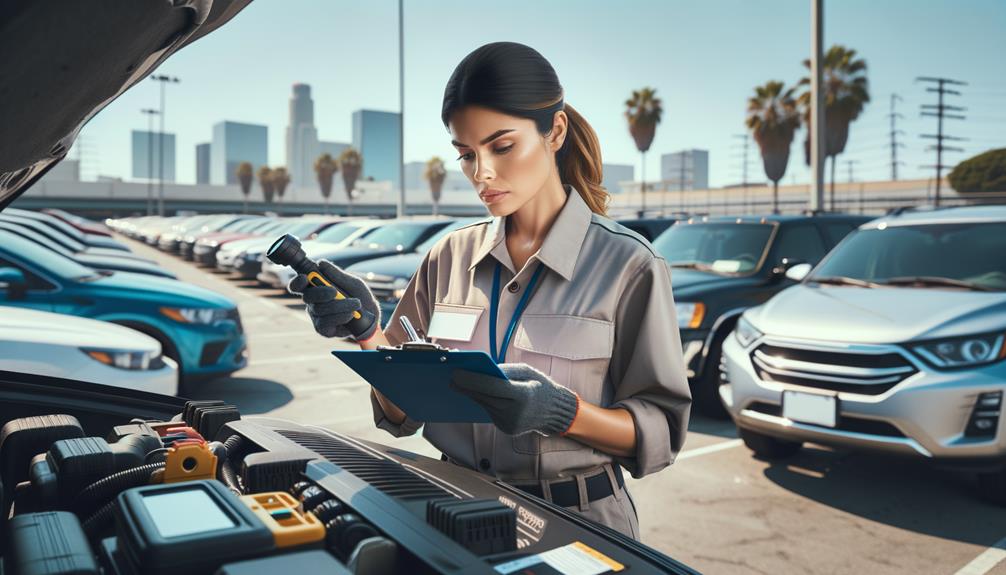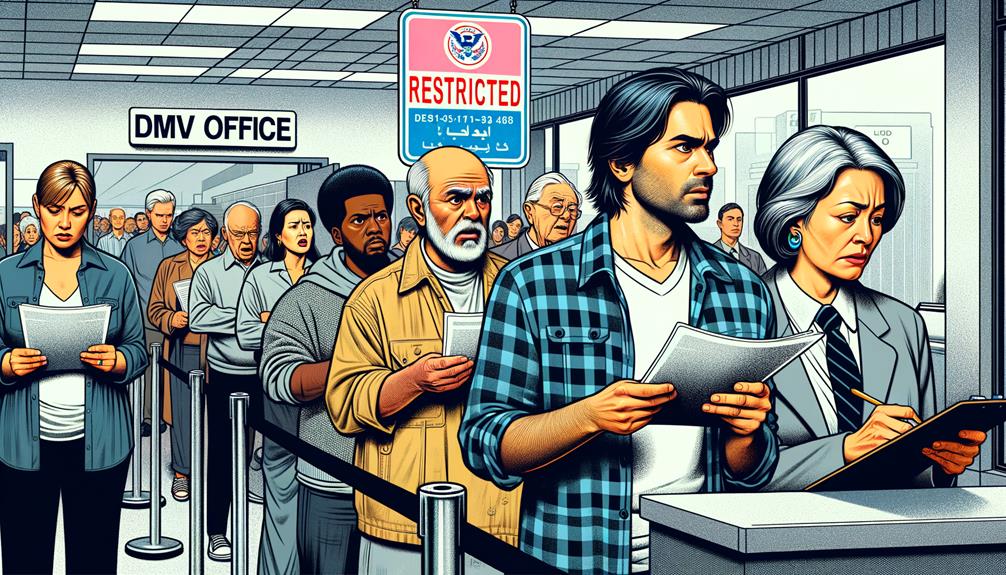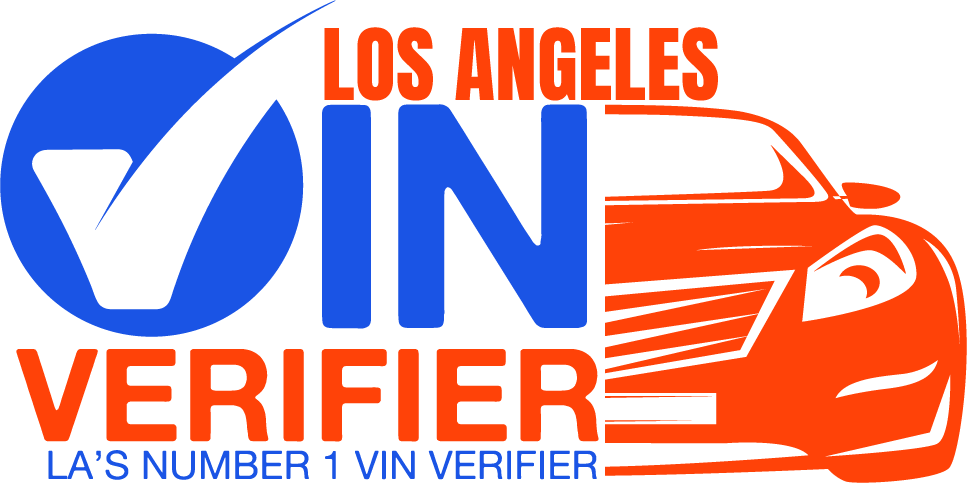You're moving to Los Angeles and bringing your car along, but have you considered the importance of VIN verification in the vehicle registration process? As a crucial step, it ensures your vehicle's identity matches official records, safeguarding against fraud and theft. In Los Angeles, this isn't just a formality; it's a guardrail that maintains the system's integrity and your peace of mind. Ever wonder what happens if discrepancies arise during this verification, or how they're resolved? Stay tuned, as understanding these nuances could be more critical than you realize, especially in a city as bustling and complex as Los Angeles.
Overview of VIN Verification

VIN verification in Los Angeles is essential when registering an out-of-state vehicle to ensure the VIN matches official records. This process, overseen by the California DMV, confirms the vehicle's identification number corresponds with the title documents, safeguarding against fraudulent registrations and theft. When you bring your vehicle from another state, you'll need to complete this step as part of your vehicle registration in California.
The verification is documented on a REG 31 form, a crucial piece of paperwork you must submit to the DMV. This form captures all necessary details about your vehicle, confirming its existence and compliance with state regulations.
You have a few options for where to get this verification done. The California DMV offers this service, and so does the California Highway Patrol. Additionally, licensed private verifiers are available and can perform the inspection, potentially for a fee.
It's important you're aware that while some locations offer the service for free, others might charge. Therefore, it's wise to check in advance and perhaps make an appointment to ensure a smooth and cost-effective vehicle registration process. This proactive approach will help you avoid any delays or complications with registering your vehicle in Los Angeles.
Inspection Criteria Explained
You'll need to ensure that the vehicle's year, make, model, and VIN are correctly verified and documented during the inspection process. As you navigate the VIN verification steps necessary for vehicle registration in Los Angeles, remember that each component is crucial for DMV compliance. Moreover, the physical inspection doesn't just stop at these basics.
During the inspection, the DMV inspector will also record the number of wheels and axles. This might seem minor, but it's essential for confirming vehicle specifications. Likewise, details about the vehicle's license plate and fuel type are gathered. These elements help in creating a comprehensive profile of your vehicle, ensuring that all information aligns with state and federal requirements.
Pay close attention to the odometer reading and the presence of the US Federal Certification Label and emissions label. These are checked to verify that your vehicle meets environmental and safety standards. Such compliance is particularly important in Los Angeles, where environmental regulations are stringent.
Registration Procedures and Requirements

To register your vehicle in Los Angeles, begin by completing the REG 31 form for a VIN verification if your car was last registered out of state or there are discrepancies with the VIN. This initial step is crucial as it confirms the identity of your vehicle through the VIN verification process, ensuring that the details match the official records.
Once you've handled the VIN verification, you'll need to gather additional documentation to proceed with the registration in Los Angeles County. This includes providing valid identification, which verifies your identity as the current owner, and proof of ownership, which establishes your legal claim to the vehicle. These documents are essential as they link you to the vehicle you're registering.
It's important to remember that the REG 31 form must be filled out by authorized VIN verifiers. These verifiers play a key role in the registration process by certifying that the VIN displayed on your vehicle matches the one on your documentation.
After completing these steps, you'll have successfully navigated the initial requirements of vehicle registration in Los Angeles, setting the stage for compliance with local regulations and ensuring a smooth experience with the DMV.
Verification Options and Costs
After completing the initial steps of vehicle registration, let's explore your options and the associated costs for VIN verification in Los Angeles. You've got several routes to choose from, each with its own set of advantages.
Firstly, the DMV and CHP offer VIN verification at no cost, provided you have all the required documents in order. This is a budget-friendly option if you're not in a rush and can align with their schedules.
If you're an AAA member, take advantage of the VIN verification services included in your membership. Remember, though, this doesn't cover salvage vehicles, so you'll need to consider other options for those.
For a more flexible schedule, private VIN verification services like Quick VIN Verification are available. They start at $45 for an in-person inspection. If you need them to come to you, the cost can rise to $97 for mobile services within LA County.
These services accept various payment methods, including cash, checks, Zelle, Venmo, and credit/debit cards, making the transaction as convenient as possible for you.
Choose wisely based on your needs, considering both the costs and convenience offered by each option.
Common Restrictions and Limitations

While exploring VIN verification in Los Angeles, keep in mind that certain vehicles face restrictions and can't be inspected. For instance, if you've got a revived salvage vehicle or one that's been junked and lacks federal safety labels, you're out of luck; these vehicles are ineligible for inspection.
Additionally, motorcycles without the necessary supporting documentation also face rigorous limitations, narrowing down the types that can undergo VIN verification.
Another significant limitation involves gray market vehicles or those directly imported outside of official channels. These vehicles don't qualify for VIN verification in California due to non-compliance with specific standards set by the state. If you're dealing with a vehicle that was previously but isn't currently registered in the DMV database, the inspection process becomes more complex and limited.
Furthermore, California has strict emission standards, and vehicles that don't meet these criteria are prohibited from undergoing VIN verification. This regulation ensures that only vehicles compliant with California's environmental codes are registered and driven, safeguarding air quality and public health.
Therefore, it's crucial to check if your vehicle meets these standards before seeking VIN verification.
Vehicle Ownership and Titles
Understanding vehicle ownership in California starts with knowing that titles document the legal standing of your vehicle, which may be influenced by factors like co-ownership or liens. It's crucial to manage these documents carefully during your vehicle's registration process to avoid any legal issues.
Here are some key points to remember:
- Branded Titles: Be aware that vehicles with branded titles, such as salvage or lemon law buybacks, require extra attention. These conditions must be transparently disclosed during ownership transfers.
- Ownership Transfers: When transferring ownership, you'll need a bill of sale and signatures from all legal owners. This documentation is vital to update the vehicle's title.
- Electronic Liens: If your vehicle has an electronic lien, it must be processed through the Electronic Lien and Title (ELT) program. This ensures the lienholder information is accurately reflected.
- VIN Verification: Always verify that the VIN on the title matches the VIN on the vehicle. This step is essential for successful registration and to prevent potential legal complications.
Fees, Penalties, and Exemptions

You'll find that VIN verification services provided by the DMV and CHP are free, although private verifiers may charge varying fees. When registering your vehicle in California, understanding the fees and potential penalties associated with VIN verification is crucial. If your registration is late, you might face penalties detailed in VC § 9250-9265, adding an unexpected cost to the process.
However, not every vehicle requires a VIN verification. Exemptions exist which can simplify your registration experience. For instance, new trailers under the Permanent Trailer Identification (PTI) program, and commercial vehicles new to California or those issued an IRP within 60 days, are exempt. Similarly, vehicles that haven't been modified or aren't kit-assembled don't require VIN verification, potentially saving you time and money.
Moreover, if you're facing financial hardship or meet other specific criteria outlined in VC § 9562, fees for VIN verification might be waived. It's essential to check if you qualify for these exemptions before you proceed with vehicle registration. Remember, being informed about these exemptions can significantly ease your vehicle registration process in California.
Registration Challenges and Corrections
If you encounter discrepancies in your vehicle's description, you'll need to correct them as mandated by VC § 4159 to maintain accurate title records. Facing registration challenges can be daunting, but understanding how to navigate these issues ensures compliance and avoids further complications.
Here are some key actions you might need to consider:
- VIN Verification: This is crucial if your vehicle's VIN isn't found in the DMV database. VIN inspections confirm the identity and help re-registration processes.
- Update Vehicle Descriptions: Ensure all details are correct, especially if your vehicle has modifications or errors in the initial registration.
- Resolve Lien Disputes: Follow VC § 5603 to handle disputes and update lienholder information accurately.
- Re-registration of Out-of-State Vehicles: Vehicles from outside California require VIN verification to meet state registration standards and prevent fraud.
Permits and Special Regulations

In Los Angeles, you may need special permits for various vehicle uses to comply with local and state regulations. For instance, if you're involved in disaster relief, you'll need a specific permit to ensure your vehicle meets California regulations. This is crucial not just for compliance but also for the efficiency and legality of your operations.
Additionally, if you drive an eligible low-emission vehicle, you might want to apply for Clean Air Vehicle decals. These decals offer significant benefits, like access to carpool lanes, which can save you a lot of time during daily commutes. Remember, the process involves VIN verification to confirm your vehicle's eligibility.
If your vehicle is still awaiting permanent registration, you can obtain a Temporary Operating Permit. This permit allows you to legally drive while you sort out your registration details. It's a practical solution that keeps you compliant with the law.
For nonresident commercial vehicle operators, there's a necessity to acquire a nonresident commercial vehicle permit. This ensures that your vehicle operations are in line with California's stringent standards.
Lastly, if you're riding a special motorcycle, check whether you need a Special Motorcycle Transportation Permit. This permit is essential for legal operation on public highways, underscoring the importance of proper vehicle registration and compliance.

